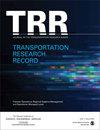Assessment of Different Spatial Interpolation Techniques for Generating Synthetic Soil Boring Data
IF 1.8
4区 工程技术
Q3 ENGINEERING, CIVIL
引用次数: 0
Abstract
Subsurface soil conditions usually involve special site variability that cannot be ignored for design and analysis. Therefore, the effect of site variability on associated soil properties should be assessed using gathered field data, such as soil boring data collected from discrete locations. In this study, six spatial interpolation techniques, the ordinary kriging (OK), simple kriging (SK), universal kriging (UK), inverse distance weight (IDW), spline, and natural neighbor (NaN) were evaluated to assess the best prediction strategy for considering site variability. The efficacy of these methods was tested at four soil boring sites. Boring profiles were generated using the different techniques at specified locations for each site, and the created data were compared with the measured soil boring profiles. For each location, the best-fit line of measured versus predicted undrained shear strength (S u ) or standard penetration test (SPT) number, mean bias factor (λ), coefficient of effectiveness (COE), root mean square error (RMSE), and coefficient of variation (COV), were calculated and used to assess the various interpolation methods. The findings of this study demonstrated the ability of these spatial interpolations to produce precise soil boring data. The slope of best-fit line of measured/generated S u and SPT ranged from 0.89 to 0.99. The best-performing interpolation methods (in order) are: IDW, OK/UK, and SK methods. The results show that the COVs between the measured and synthetic soil boring data at the selected points are significantly lower than the COVs between the measured soil boring profiles for the entire site.合成土壤掘进数据的不同空间插值技术评价
地下土壤条件通常涉及特殊的场地变异性,在设计和分析中不能忽视。因此,应该使用收集到的现场数据来评估场地变异性对相关土壤性质的影响,例如从离散地点收集的土壤钻孔数据。本研究利用普通克里格法(OK)、简单克里格法(SK)、通用克里格法(UK)、逆距离权法(IDW)、样条法(spline)和自然邻域法(NaN)等6种空间插值方法,评估了考虑场地变异性的最佳预测策略。在4个钻孔点试验了这些方法的有效性。在每个站点的指定位置使用不同的技术生成钻孔剖面,并将生成的数据与测量的土壤钻孔剖面进行比较。对于每个位置,计算了实测与预测的不排水抗剪强度(S u)或标准渗透试验(SPT)数、平均偏置系数(λ)、有效性系数(COE)、均方根误差(RMSE)和变异系数(COV)的最佳拟合线,并用于评估各种插值方法。本研究的结果表明,这些空间插值能够产生精确的土壤钻孔数据。实测/生成的su和SPT的最佳拟合线斜率为0.89 ~ 0.99。性能最好的插值方法(按顺序排列)是:IDW、OK/UK和SK方法。结果表明:在所选点的实测与人工土掘进数据之间的cov值显著低于整个站点实测土掘进剖面之间的cov值。
本文章由计算机程序翻译,如有差异,请以英文原文为准。
求助全文
约1分钟内获得全文
求助全文
来源期刊

Transportation Research Record
工程技术-工程:土木
CiteScore
3.20
自引率
11.80%
发文量
918
审稿时长
4.2 months
期刊介绍:
Transportation Research Record: Journal of the Transportation Research Board is one of the most cited and prolific transportation journals in the world, offering unparalleled depth and breadth in the coverage of transportation-related topics. The TRR publishes approximately 70 issues annually of outstanding, peer-reviewed papers presenting research findings in policy, planning, administration, economics and financing, operations, construction, design, maintenance, safety, and more, for all modes of transportation. This site provides electronic access to a full compilation of papers since the 1996 series.
 求助内容:
求助内容: 应助结果提醒方式:
应助结果提醒方式:


